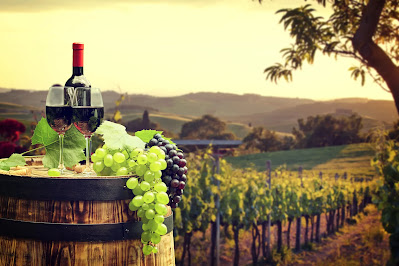DAILY INNOVATION BRIEF by Edward Kane, Journalist
DAILY INNOVATION BRIEF
By Journalists Edward Kane & Maryanne Kane
A TIME FOR WHINE: CLIMATE CHANGE COULD DESTROY OUR FAVORITE WINES
Source: Stock
- 90% of premier winegrowing regions could lose the ability to grow grapes due to Climate Change
- The findings come from a new study published by Nature Reviews Earth and Environment done by Bordeaux Sciences Agro Research Institute
- The world's most celebrated wine-growing regions are being impacted by CC and could become unsuitable by 2100
- Rising temps/global warming in premier regions such as Spain, Italy, Southern France and California could make wines sweeter and more alcoholic and even prevent grape growth
- Heat waves from CC, excessive drought and widespread global warming, which are highly likely, put at risk 90% of premier wine growing regions and 70% of existing regions
- Grapes are the world's 3rd most valuable horticultural crop and there will be a huge economic impact
- If you value a tasty glass of wine to cap off the day...Climate Change may take the "cheers" out of Happy Hour.
CREATING THE IMPOSSIBLE - PLANT-BASED PLASTIC
Source: Stock & UC San Diego
- This has all the elements of an innovation breakthrough. US scientists have created plant-based plastic. It's an eco-friendly, healthy, biodegradable alternative to current plastics that take up to 1,000 years to biodegrade and are polluting the world. Here are some key facts:
- 97% of this algae-based plastic biodegrades within 200 days, not 1000 years
- The bioplastic has been developed by scientists at UC San Diego and the materials science company Algenesis
- It does not generate microplastic particles that are toxic and cancer-causing
- Microplastics are found in our food, water and bodies
- Current plastic water bottles can contain thousands of cancer-causing microplastic filaments
- The scientists say their bioplastic is a sustainable alternative to plastic and their new plastic does not make you sick
- More work needs to be done but these scientists have created what they were told would be impossible: a safe alternative to plastic, which is a global pollutant
- This will be commercialized, and the team has already started with an engineering group to create cell phone cases out of it.








Comments
Post a Comment